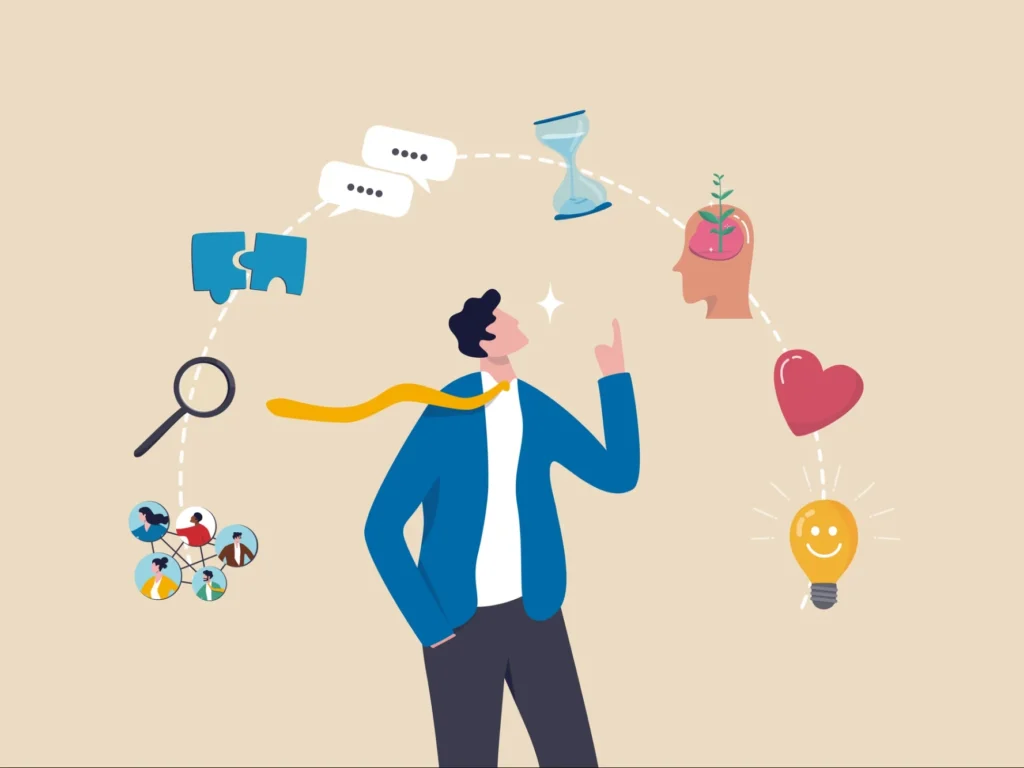Improving your soft skills and emotional intelligence can greatly enhance your personal and professional life. Here are seven easy steps to help you achieve this:
- Self-awareness:
Take time to reflect on your emotions, thoughts, and behaviors. Identify your strengths and weaknesses, as well as areas where you can improve. - Active listening:
Practice attentive listening during conversations. Focus on understanding the speaker’s perspective, rather than formulating your response. Ask clarifying questions to demonstrate your interest and empathy. - Empathy:
Put yourself in others’ shoes and try to understand their feelings and perspectives. Show compassion and support to those around you, especially during challenging times. - Effective communication:
Work on expressing yourself clearly and assertively. Pay attention to your tone, body language, and choice of words. Practice giving and receiving constructive feedback to improve communication skills. - Conflict resolution:
Develop strategies for resolving conflicts calmly and constructively. Focus on finding mutually beneficial solutions and maintaining positive relationships. - Adaptability:
Embrace change and be open to new ideas and perspectives. Learn to navigate uncertainty and adapt to different situations and environments. - Continuous learning:
Commit to lifelong learning and personal development. Seek out opportunities to acquire new skills, expand your knowledge, and gain insights into human behavior and emotions.
By incorporating these steps into your daily life, you can gradually enhance your soft skills and emotional intelligence, leading to improved relationships, communication, and overall well-being.
Frequently Asked Questions (FAQ) about Improving Soft Skills and Emotional Intelligence
1. What are soft skills, and why are they important?
Soft skills refer to personal attributes and interpersonal skills that enable effective communication, collaboration, and interaction with others. They are essential for success in various aspects of life, including personal relationships, career advancement, and leadership roles.
2. What are examples of soft skills?
Examples of soft skills include communication, teamwork, empathy, adaptability, problem-solving, time management, emotional intelligence, and leadership.
3. How can I improve my soft skills?
You can improve your soft skills through self-awareness, active listening, empathy-building exercises, communication workshops, conflict resolution training, and continuous learning. Engaging in regular reflection, seeking feedback from others, and practicing mindfulness can also help enhance soft skills.
4. What is emotional intelligence (EI), and why is it important?
Emotional intelligence refers to the ability to recognize, understand, and manage one’s emotions, as well as to recognize and influence the emotions of others. EI is crucial for effective communication, decision-making, conflict resolution, and building strong relationships, both personally and professionally.
5. How can I enhance my emotional intelligence?
To enhance emotional intelligence, focus on self-awareness, self-regulation, social awareness, and relationship management. Practice mindfulness and emotional regulation techniques, such as deep breathing and meditation. Develop empathy by actively listening to others and seeking to understand their perspectives.
6. Can soft skills and emotional intelligence be learned and developed?
Yes, soft skills and emotional intelligence can be learned, developed, and strengthened over time with practice, feedback, and self-reflection. By committing to continuous improvement and personal development, individuals can enhance their interpersonal skills and emotional intelligence.
7. How can improving soft skills and emotional intelligence benefit me?
Improving soft skills and emotional intelligence can lead to greater success and fulfillment in both personal and professional life. These skills enable better communication, stronger relationships, effective leadership, enhanced problem-solving abilities, and increased resilience in the face of challenges. Additionally, individuals with high emotional intelligence often experience improved mental health and well-being.
8. What resources are available to help me improve my soft skills and emotional intelligence?
There are numerous resources available, including books, online courses, workshops, coaching sessions, and self-assessment tools focused on soft skills and emotional intelligence development. Additionally, seeking mentorship, participating in networking events, and joining professional organizations can provide valuable opportunities for growth and skill-building.








